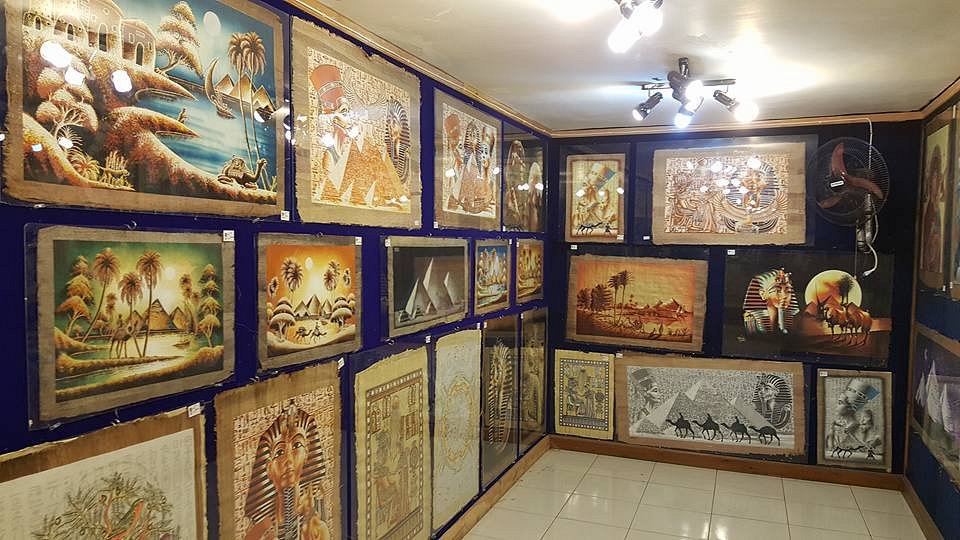The Papyrus Museum in Egypt offers a fascinating journey into one of humanity’s earliest and most significant inventions — papyrus.


Post Introduction
The Papyrus Museum in Egypt offers a fascinating journey into one of humanity’s earliest and most significant inventions — papyrus.
Post Content
The Papyrus Museum in Egypt offers a fascinating journey into one of humanity’s earliest and most significant inventions — papyrus. More than just a plant-based material, papyrus was the very foundation of written communication in ancient Egypt. Long before paper, printing presses, or digital screens, Egyptians mastered the craft of turning the stalks of the papyrus plant into durable sheets used for recording history, religious texts, literature, and art.
Located in several key tourist areas, particularly in Cairo and near the Great Pyramids of Giza, the Papyrus Museum serves as both an exhibition hall and a workshop. Here, visitors can see ancient manuscripts, artistic reproductions of famous scenes from tombs and temples, and demonstrations of how papyrus sheets were made thousands of years ago. For travelers seeking to connect with Egypt’s intellectual and artistic legacy, the Papyrus Museum is an unmissable cultural stop.
This museum isn’t just about displaying relics — it brings the art of papyrus-making to life. Guests can watch skilled artisans peel, press, and weave the papyrus plant into sheets, just as ancient scribes did. The experience reveals how this innovation transformed Egypt into one of the most advanced civilizations of its time. From the earliest hieroglyphic inscriptions to colorful, hand-painted works depicting gods, pharaohs, and daily life, the Papyrus Museum preserves a medium that bridged art and communication for millennia.
🔹 Recommended Program: 4 day egypt itinerary
Papyrus was invented in ancient Egypt around 3000 BCE and quickly became a cornerstone of civilization. Unlike clay tablets or animal hides used elsewhere, papyrus sheets were lightweight, easy to store, and perfect for writing with reed pens and ink. This made record-keeping, literature, and correspondence far more efficient.
The pharaohs’ governments relied heavily on papyrus for recording laws, taxes, trade transactions, and census data. Religious texts such as the Book of the Dead were meticulously written on papyrus scrolls, while artists used it to create colorful illustrations and decorative scenes inspired by ancient Egyptian symbolism.
For centuries, Egypt was the exclusive producer of papyrus, exporting it across the Mediterranean to Greece, Rome, and beyond. It remained the world’s most important writing medium until parchment and later paper replaced it.
🔹 Read About: The Grand Egyptian Museum
One of the most captivating features of the Papyrus Museum is the live demonstration area. Skilled artisans cut the green stalks of the papyrus plant, remove the outer rind, slice the inner pith into strips, soak them in water, and then press them into sheets. This ancient method produces a remarkably durable material that can last thousands of years.
The museum displays an array of hand-painted papyrus artworks that depict iconic scenes such as the weighing of the heart in the afterlife, the goddess Isis spreading her wings, and the Great Pyramids under the desert sun. Many works are inspired by masterpieces found in sites like the Egyptian Museum of Cairo.
In addition to its exhibits, the museum offers guided tours and lectures on ancient Egyptian writing, art styles, and historical context. Some locations also host hands-on workshops, where visitors can make their own papyrus sheet to take home.
Unlike archaeological museums that focus solely on artifacts, the Papyrus Museum immerses visitors in a living tradition. It’s both a history lesson and a creative experience closely connected to broader Egyptian cultural traditions.
Whether you’re fascinated by hieroglyphics, ancient technology, or the beauty of Egyptian art, the museum offers something for every interest.
Authentic papyrus artwork makes for an elegant and meaningful souvenir. Many pieces are signed by local artists, making them unique keepsakes of your trip to Egypt.
Papyrus paintings often feature gods and goddesses such as Ra, Osiris, Isis, and Anubis. Each image tells a symbolic story that connects deeply with ancient Egyptian beliefs.
From coronations to hunting scenes, papyrus art provides a colorful window into the grandeur and daily activities of pharaohs and their courts.
Many artworks incorporate hieroglyphic writing, adding authenticity and educational value. These inscriptions often include blessings, quotes, or names of historical figures.
Real papyrus has visible cross-hatched layers and a slightly rough texture. Fake versions made from banana leaves or other materials lack these natural details.
Authentic papyrus doesn’t peel or fade when exposed to a small drop of water, unlike counterfeit products.
Buying directly from the Papyrus Museum ensures authenticity and supports local artists who preserve this ancient craft.
Q1: Where is the Papyrus Museum located?
Several Papyrus Museums operate in Egypt, with popular ones near the Giza Pyramids and in downtown Cairo, often attached to artisan workshops.
Q2: How old is the tradition of papyrus-making?
Papyrus-making dates back over 5,000 years to ancient Egypt, making it one of the oldest known writing materials in the world.
Q3: Can I watch live papyrus-making demonstrations?
Yes, most Papyrus Museums offer live demonstrations showing the traditional process from raw stalk to finished sheet.
Q4: Is the papyrus artwork for sale genuine?
When purchased directly from a certified Papyrus Museum, the artworks are made from authentic papyrus and hand-painted by skilled artisans.
Q5: How long can papyrus last?
With proper care, papyrus can last thousands of years — ancient scrolls discovered in Egyptian tombs are still intact today.
Q6: Do Papyrus Museums offer guided tours?
Yes, many locations provide guided tours in multiple languages, giving deeper insight into papyrus history, techniques, and symbolism.
🔹 Suggested Nile Experience: Best Dahabiya Nile Cruise 5 Days
🔹 Explore More Options: Best Egypt Tours Packages